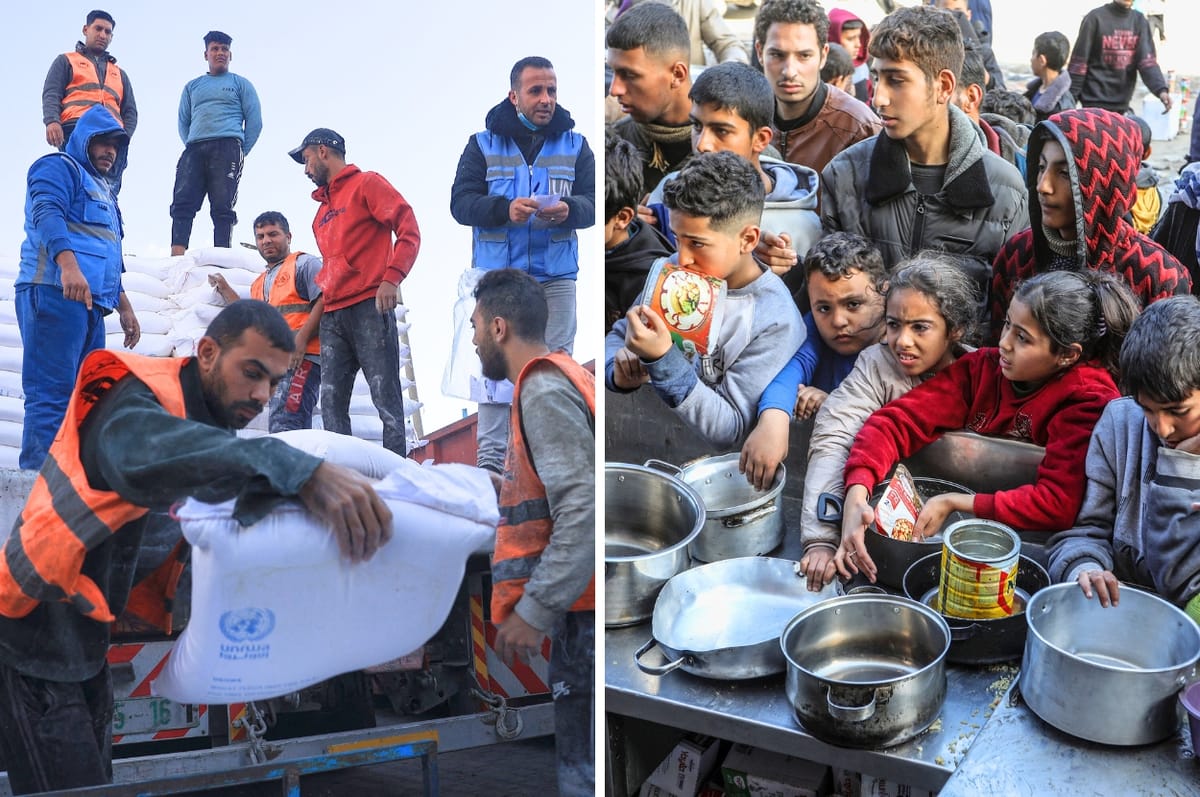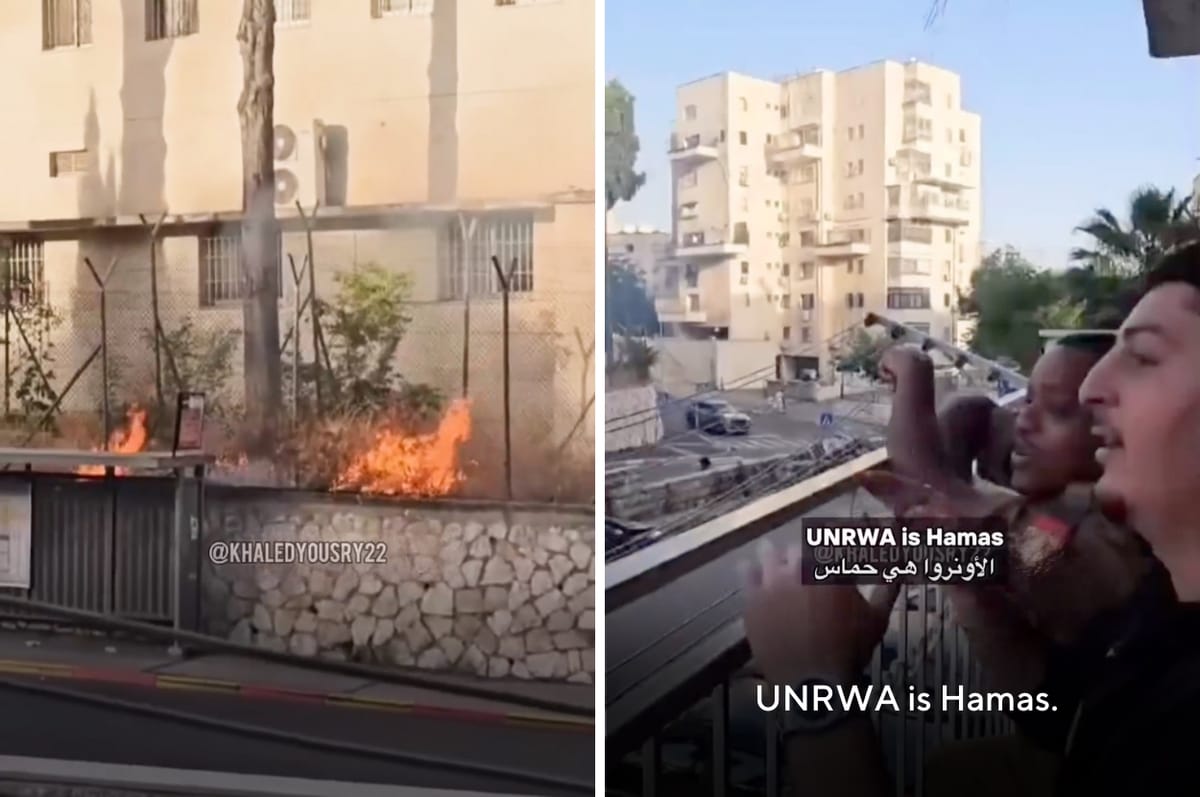Israel Has Banned The UN’s Palestine Aid Agency From Operating In The Country, Accusing It Of Being Hamas
The bills ban UNRWA from conducting any activity within Israel and its occupied territories including the occupied East Jerusalem, the West Bank and Gaza Strip.

Israel's parliament, the Knesset, passed two bills on Monday, Oct. 28, banning the United Nations Relief and Works Agency for Palestine Refugees (UNRWA) from “conducting any activity” within Israel and its occupied territories.
The decision, with 92 in favor and 10 against, bans UNRWA from carrying out any operations or services in Israel, as well as in Israeli-occupied East Jerusalem, the West Bank, and Gaza.
The legislation may also lead to UNRWA having to shut down its East Jerusalem headquarters and block aid deliveries into Gaza, particularly at the Rafah crossing, according to AP.
This move could have dire consequences for millions of Palestinians in Gaza who entirely rely on the agency's services for essential aid delivery as Israel continues its genocide.
The legislation will take effect in 90 days, overturning a 1967 agreement that allowed UNRWA to assist Palestinian refugees in the territories.
Israeli lawmakers also passed a bill labeling UNRWA a terrorist organization.
By doing this, UNRWA staff will no longer have legal protection that is typically granted to humanitarian workers and Israeli government officials will also be banned from engaging or working with UNRWA personnel.
This might also prevent UNRWA from obtaining necessary permits for its operations, including entry and work permits for foreign staff.
The bill was created because Israel had accused some UNRWA employees of being involved in Hamas’ Oct. 7 surprise attack on Israel and claimed that at least 12 staff members belonged to Hamas, according to Reuters.
Israel has long claimed that Hamas has “infiltrated” UNRWA but the agency has consistently denied the allegations and maintains that it does not support militant groups.
The decision has raised alarm about the worsening humanitarian crisis facing millions of Palestinians who completely rely on UNRWA for essential services like healthcare, education, and food.
Currently, around two million Palestinians are displaced in Gaza, facing severe shortages of basic necessities due to Israel’s ongoing genocide in Gaza.
UNRWA has been a critical support system for these communities since its establishment in 1949, providing aid to Palestinian refugees across multiple countries.
Philippe Lazzarini, the head of UNRWA, warned that the new bill is “unprecedented and sets a dangerous precedent.”
“These bills will only deepen the suffering of Palestinians, especially in Gaza where people have been going through more than a year of sheer hell,” he wrote on X.
The agency employs about 13,000 people in Gaza and serves millions in the region.
Several countries and international bodies condemned the new legislation, including Israel’s Western allies.
The US said it was "deeply concerned" about the new law and urged Israel to reconsider it because US law prevents military aid from going to countries that block American humanitarian aid.
UK’s prime minister Keir Starmer also voiced “grave concern” over the passing of the bill.
“The humanitarian situation in Gaza is simply unacceptable. We need to see an immediate ceasefire, the release of the hostages and a significant increase in aid to Gaza. Under its international obligations, Israel must ensure sufficient aid reaches civilians in Gaza,” he added.
Israeli Prime Minister Benjamin Netanyahu defended the law by saying that, “Unrwa workers involved in terrorist activities against Israel must be held accountable.”
UNRWA workers involved in terrorist activities against Israel must be held accountable. Since avoiding a humanitarian crisis is also essential, sustained humanitarian aid must remain available in Gaza now and in the future.
— Prime Minister of Israel (@IsraeliPM) October 28, 2024
UNRWA has accused Israel of blocking essential supplies –like food, water, and medicine from reaching Palestinians in Gaza, worsening the humanitarian crisis by closing key border crossings, including Rafah.
Recent data has shown that 83% of required food aid is not reaching Gaza, up from 34% last year, according to Norwegian Refugee Council.
Additionally, aid truck access has dropped sharply, with only 69 trucks entering Gaza daily in August 2024, compared to 500 per day in 2023. This shortage has left over a million people without food rations in southern and central Gaza.
The ongoing restrictions have put nearly half a million people in Gaza at risk of starvation, and hospitals are close to collapsing because they don’t have the resources needed to care for people.
Since Oct. 7, Israel has also repeatedly targeted UNRWA’s facilities in Gaza since Oct. 7, killing at least 237 UNRWA workers, the most UN workers killed in the entire history of the organization.
More On Israel's Attacks On UNRWA







